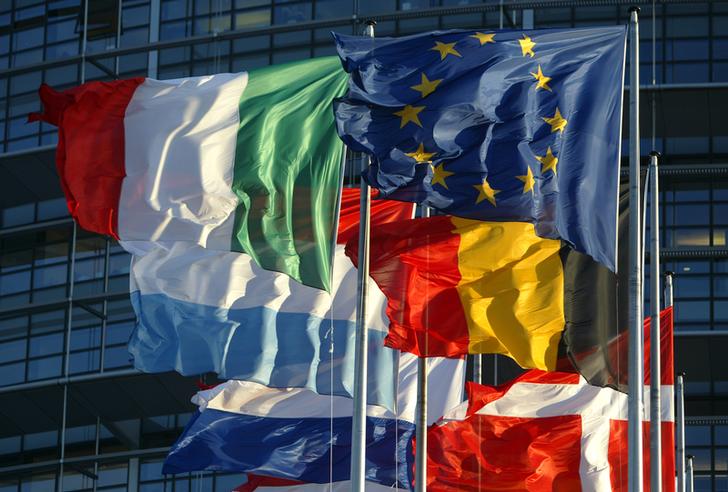Hopes for euro zone reform face both green and red lights. The approval of Germany’s new ruling coalition has cleared the way for plans to strengthen the single currency area. Yet proposals to backstop banks and governments remain contentious, while Italy’s new government adds uncertainty. With the European Central Bank’s firepower waning, delay may prove costly.
The vote by members of Germany’s Social Democratic Party (SPD) for a renewed coalition with Angela Merkel’s Christian Democrats (CDU) removes one obstacle to reform. With national elections out of the way and europhile leaders installed in both Germany and France – the euro zone’s two biggest economies – there is a chance to take bold action.
Hopes for change rest on two main ideas. The first is to complete Europe’s banking union by approving a euro-wide guarantee for bank deposits. That should help make banks and national economies more resilient in a downturn. The second proposal is to beef up the European Stability Mechanism, turning it into a kind of European Monetary Fund that could help to cushion economic shocks. The coalition treaty between the SPD and CDU explicitly mentions the latter.
Even within the euro zone, however, there is still widespread disagreement over how a beefed-up ESM would work. Dutch Prime Minister Mark Rutte said on March 2 that the fund should only lend as a last resort, and that countries which are insolvent should restructure their debt first. That doesn’t sound like a big change.
Italy’s election could further delay reform. Though a hung parliament is not unusual, the anti-establishment and occasionally eurosceptic 5-Star Movement and League were big winners, together gathering around 50 percent of the vote. Both parties want to increase spending. One key requirement for a common deposit insurance scheme – that banks offload sovereign debt – looks unlikely to win their support.
The window for reform was already tight. The euro zone’s strong economic recovery creates an opportunity to push through changes. Though the European Central Bank is now winding down its bond–buying programme it has little spare firepower to respond to another shock. If governments tread water, they may be ill-prepared for the next crisis.
_______________________________________________________________________
Request a free trial of Breakingviews here.


